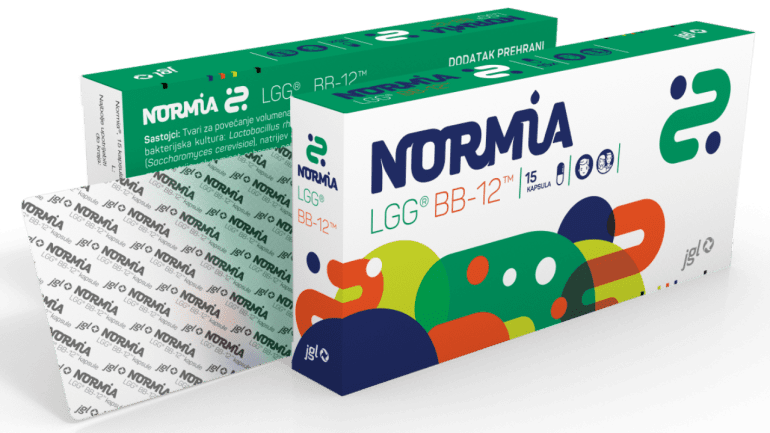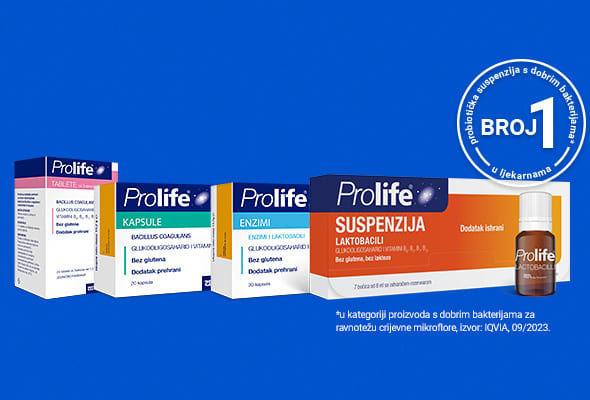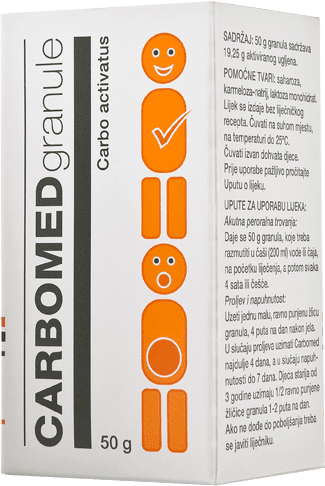Travel-related diarrhoea is common when travelling, which can, in spite of being mild in most cases, significantly deteriorate the quality of life.
A more serious problem is diarrhoea caused by an antibiotic treatment (AAD). 40% of children and 5-25% of adults suffer from it. It probably occurs as a result of change of the microflora and the metabolism of the osmotically active substances.
The seriousness of AAD is proven by the fact that 1 to 2.5% of such cases can result in death. The administration of probiotics in the treatment of acute diarrhoea has been well documented in specialized literature. Taking additional, chosen probiotics (BB12 , LGG, L.paracasei CRL-431) can significantly reduce the occurrence and seriousness of diarrhoea.










